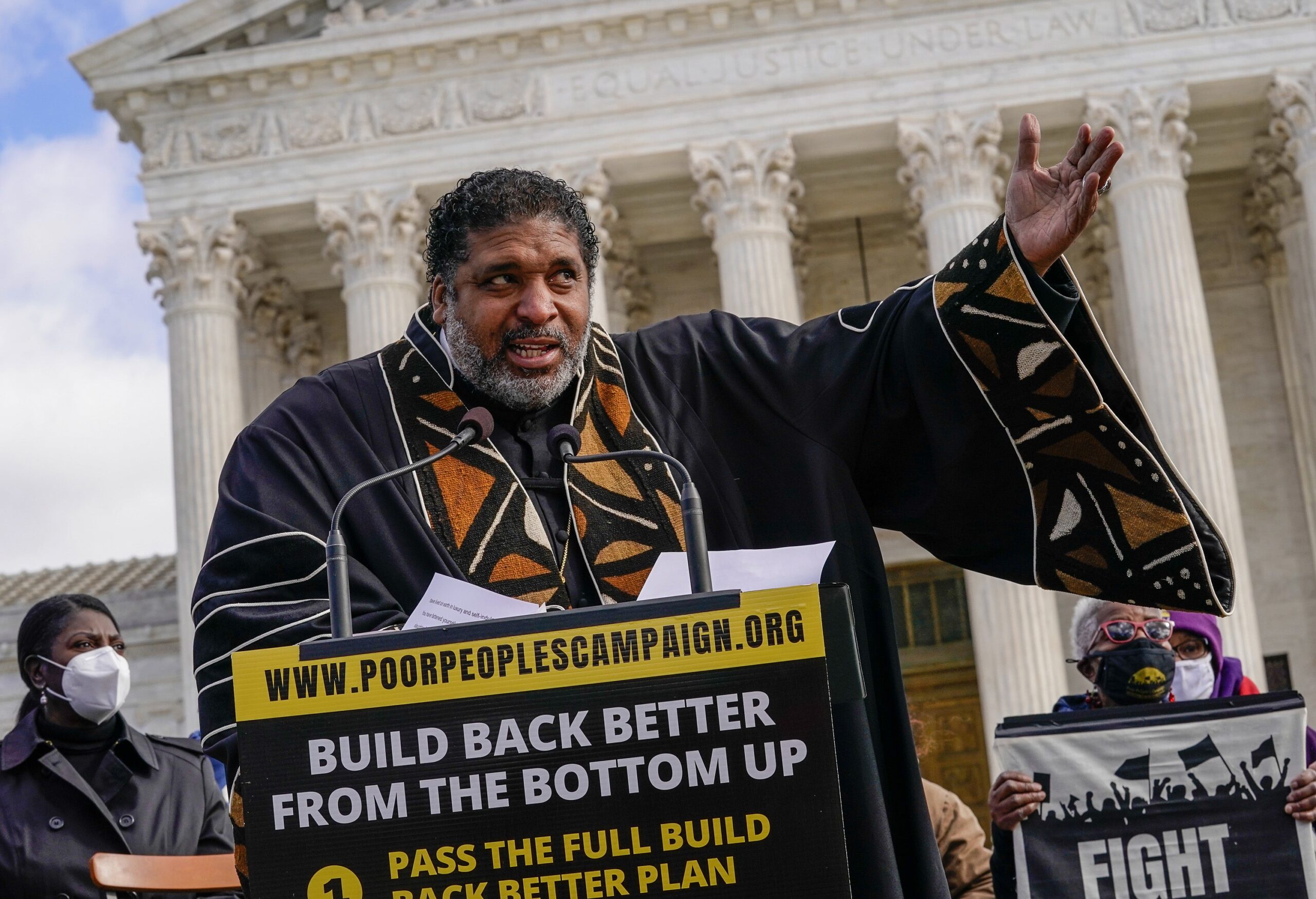There are few people who can claim to be true movement leaders. Reverend William Barber, co-chair of the Poor People’s Campaign, is without a doubt one of them.
Suggested Reading
Barber burst onto the national scene with “Moral Mondays,” a series of protests calling on politicians to do better when it came to issues like voting rights, abortion rights, cuts to social welfare programs, disability justice, and racial justice.
Thankfully, Barber was more than willing to share his insights into movement work with the Root’s audience. Lesson one: cut out the partisanship if you want to build a coalition.
“What we found in North Carolina, having to fight against extremism, was that the language of left versus right, Democrat versus Republican, was too small,” says Rev. Barber. “It automatically creates adversaries.”
Instead of leaning into partisanship, Barber found that appealing to people’s moral compasses helped to create common ground.
“When you raise [these issues] with a moral critique it has a whole different depth of penetration into society as a whole,” says Barber. “Because some things are really not about Democrat versus Republican, left versus right, conservative versus moderate. They really are about right versus wrong.”
And when you think about things through a moral lens, it really puts the absurdity of folks who claim to be people of faith, but deny people basic human rights, front and center Rev. Barber adds.
“The moral language was able to penetrate through all of the partisan debate and say to the large numbers of people—wait a minute, what are we doing here,” says Barber, especially “when politicians get up in the morning and decide that the greatest claim to their faith, the greatest claim to their success is how many people they denied health care, how many people they did not allow voting rights, or how many people they denied living wages.”
If we’re going to meaningfully address the crisis in this nation, we’re going to have to think bigger than partisanship, he says. “We have 140 million people living in poverty... the continuing realities of systemic racism, whether that’s voter suppression or mistreatment of immigrants or the continuing mistreatment of native brothers and sisters. These statistics, they demand a moral critique, a moral analysis, and a moral action.”
Teaching these lessons to the next generation is going to be a lot of work. But Barber, who recently announced to The Root that he is founding a new center for Theology and Public Policy at Yale, is willing to put in the work.
“Elders have a responsibility to participate in training new generations of leaders to be active participants in trying to create a just society,” says Barber. “I think pastors who have done it for a while have a responsibility not to carry that knowledge to the grave.”
Straight From 
Sign up for our free daily newsletter.



